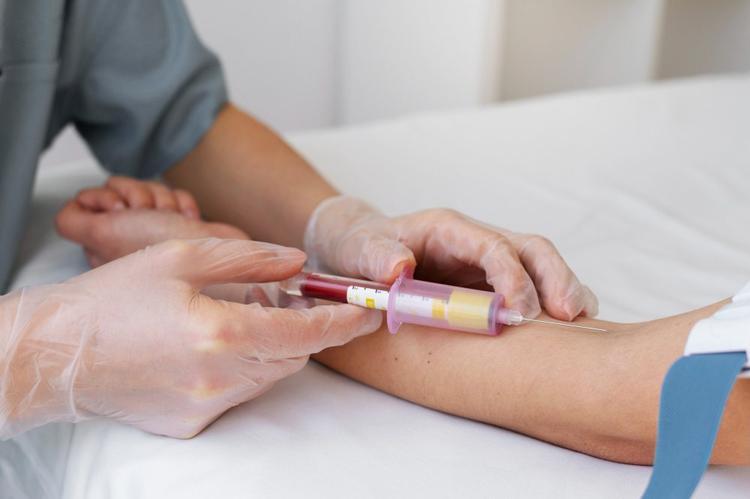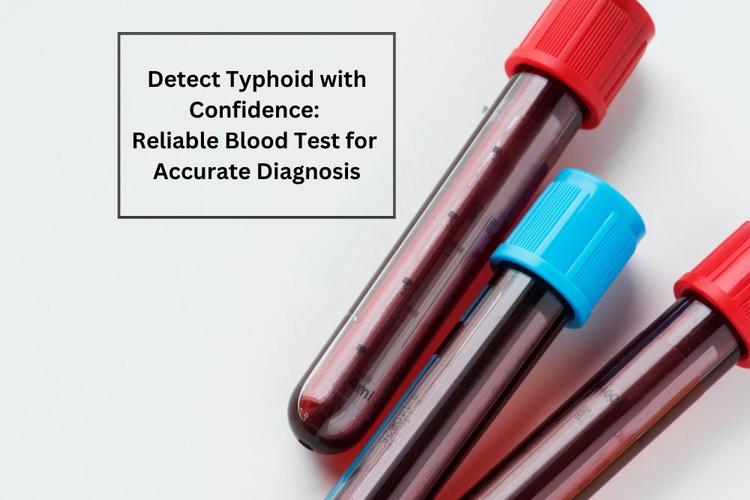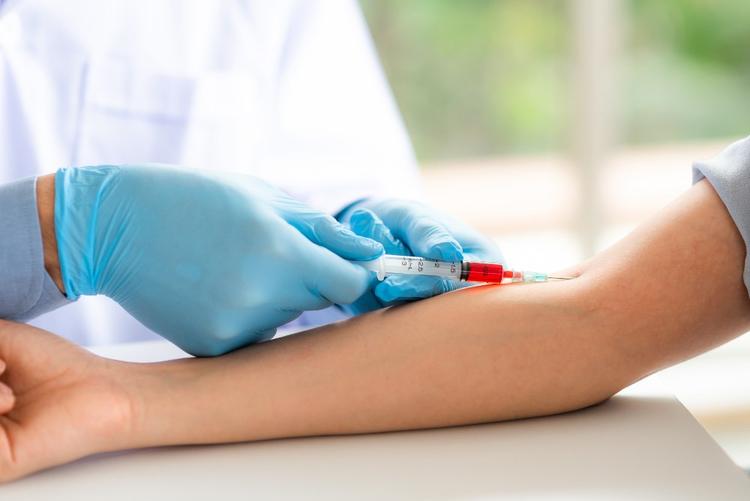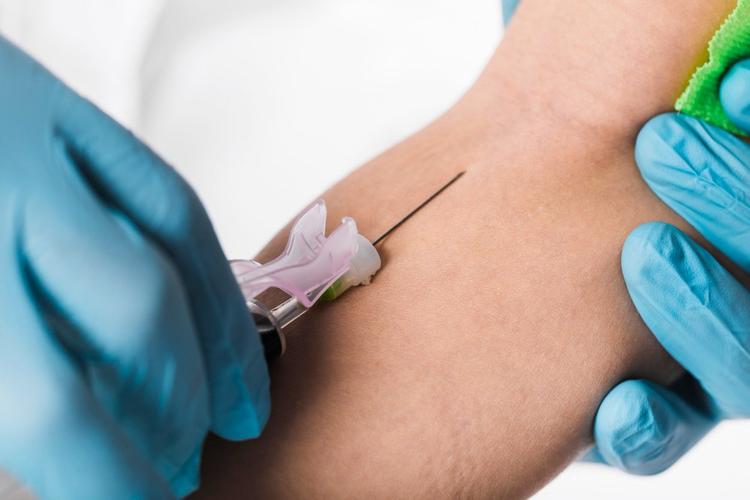5 Tests for Diagnosing Heart Diseases & Heart Health

Medically Reviewed By
Dr. Ragiinii Sharma
Written By Srujana Mohanty
on Nov 24, 2022
Last Edit Made By Srujana Mohanty
on Mar 18, 2024

Cardiovascular diseases are a group of conditions affecting the heart and blood vessels. These diseases can affect a specific part of your heart and many other parts of the heart and blood vessels. Everyone needs to take care of their heart health, as cardiovascular disease is the leading cause of death worldwide. The heart is a muscular organ in the human body that pumps blood throughout the body through the circulatory system. This circulatory system comprises the heart, blood and blood vessels. Normally the heart beats about 100000 times and pumps around 7500 liters of blood every day. It is necessary to have regular heart checkups as it is the only way that is best for your cardiovascular health. There are many causes of heart-related diseases that can vary depending on your specific type of condition. Some common types of cardiovascular diseases are:
- Coronary Heart disease
It is also termed coronary artery disease or ischemic heart disease and is the most common type of cardiovascular disease. It is a heart problem caused by narrowed coronary arteries that supply blood to heart muscles. The primary sign, in this case, is a heart attack in some cases.
- Heart attack
Heart attack is another common cardiovascular disease, also known as myocardial infarction, that occurs when something occurs like blood clot cuts and that cuts off blood flow to the heart. Due to a lack of blood flow, oxygen and nutrients, the heart begins to die. It is necessary to know all about heart attack prevention and treatment as it may not be fatal, especially if you receive immediate medical attention.
- Stroke
Stroke is another heart condition that occurs when the blood supply to the brain is disturbed and causes the brain to lose its vital supply of oxygen and nutrients. It can either be caused by a blood clot in the brain artery or when a blood vessel in the brain bursts and bleeds.
Many other conditions
Many other heart-related conditions can affect your cardiovascular health :
- Congenital heart disease
- Heart failure
- Heart valve disease
- Rheumatic heart disease
- Vascular disease
- Cerebrovascular disease
Symptoms of cardiovascular diseases
Symptoms of cardiovascular diseases can vary and depend upon the condition you have. If you experience any of the below-listed symptoms, you must visit your doctor to get a cardiac profile test and many other heart blood tests to get treated and to avoid the complications :
- Chest pain, chest pressure, chest tightness
- Weakness or numbness or pain in arms or legs
- Shortness of breath
- Discomfort in your rams, shoulder, jaw or back
- Change in heart rhythm
- Very slow or fast heartbeat
- Palpitations
Some heart blood tests necessary for cardiovascular health
Everybody should understand that heart checkup is vital to stay healthy and updated. People with high blood pressure, diabetes and those who smoke regularly are more prone to heart disease and must take care of their cardiovascular health. It is important to visit your doctor to get proper guidance and to get help identifying your risk of heart conditions. There are many heart blood tests that are vital to diagnosing and managing heart conditions. Let us tell you in detail below about some vital heart health tests :
- Lipid profile Test
- High-sensitivity C- Reactive protein test
- Troponin test for heart attack
- Electrocardiogram
- Cardiac profile test
Lipid profile
A lipid profile test, also known as a cholesterol test, measures the levels of fats in the blood and can predict if you have a risk of having a heart attack, stroke or any other heart disease. If you want to know what blood tests detect heart problems, then this is the preliminary test done to determine it. Cholesterol is a waxy substance that human body needs some cholesterol for a few biological functions like forming cell membranes, hormones and vitamin D. If your blood has excess cholesterol, it can combine with the waste product, calcium and forms fatty deposits in your arteries. It can lead to heart-related problems like heart disease, heart attack, stroke, and heart failure. The test is done to calculate four types of fats in the blood :
- Total cholesterol - is the sum of your body's overall cholesterol content.
- Low-density lipoprotein cholesterol LDL - is the bad cholesterol in your blood, and if you have an excess of this type of cholesterol, it can block your arteries and reduce blood flow. It can ultimately lead to a heart attack or stroke.
- High-density lipoprotein cholesterol HDL - is done to determine good cholesterol in the blood as it helps carry away LDL cholesterol, keep arteries open, and make blood flow freely.
- Triglycerides - is the type of fat in the blood, and the high levels of it are linked with many factors, including being overweight, eating too much sweeter, drinking too much alcohol, smoking etc. or having high glucose levels.
Who can go for a lipid profile test?
A cholesterol test is best for your cardiovascular health as it helps to determine your risk of the buildup of fatty deposits in your arteries that can lead to blocked arteries. It is a vital tool for checking high cholesterol levels and heart disease prevention. According to the national lung and heart institute, individuals should have their first lipid profile test at age 9 to 11 and then must get tested every five years. The test should be taken in one to two years for men aged 45 to 65 and for women aged 55 to 65. People above 65 years must have their lipid profile test once a year to get proper heart checkups.
The normal range for a test
An ideal test result for many adults measured in milligrams per deciliter of blood is as follows:
- Low-density lipoprotein LDL should be less than 100 mg/dL.
- High-density lipoprotein HDL should be more than 60 mg/dL.
- Total cholesterol should be less than 200 mg/dL.
- Triglycerides should be less than 150 mg/dL.
C-reactive protein
C - reactive protein, also known as CRP, is a substance produced by the liver and released in the bloodstream as part of the body's natural response to inflammation that can occur because of infection or injury. If your bloodstream shows elevated levels of CRP, then you are more prone to heart attacks and stroke, especially in women. This test should be done by women, especially for heart attack prevention; as per the study, women with high levels of CRP are more likely to have heart attacks. Inflammation plays a vital role in the development of heart disease as it is found to occur in blood vessels in starting stages of atherosclerosis. Thus, it is necessary to check on it and go for this blood test for heart function.
Who can go for a C-reactive protein test?
However, this test is recommended for everyone who wants to get fully checked and wants to take care of their heart health. This test will be for those with a 10 to 20 per cent chance of hearing a track within the next ten years. The doctor will recommend this test after checking the score and considering your lifestyle choices, family history and current health.
The normal range for a test
The normal range for C Reactive protein is measured in terms of a milligram per litre of blood, and the normal range is 3.0 mg/dL. If the test shows levels less than 1 mg/L, then you are at low risk of cardiovascular diseases. If it shows a range between 1 and 2.9 mg/L, then you will have an intermediate risk of cardiovascular disease. If you have higher readings than 3 mg/L, you are more prone to heart disease and must take care of your cardiovascular health.
Cardiovascular health is all about taking care of your heart which can be affected by many classes of diseases caused by social, economic, environmental and behavioural risk factors. There are no underlying symptoms of cardiovascular diseases; in many cases, the first sign can be a stroke or heart attack, as symptoms are based on your condition. However, if you experience chest pain or shortness of breath, then seek emergency medical care immediately. If you are concerned about your heart health, talk to your doctor to stay updated
Troponin test for heart attack
A Troponin test is done to determine the troponin level in your blood. It is a type of protein found in the muscles of the heart and is not found in the blood. It is sent to the blood only when your heart muscles become damaged, and troponin is released in the blood when heart damage increases. If a person has high troponin levels in the blood, they are at risk of developing a heart attack. This test is vital for your heart attack prevention and thus should be done on time. The test is also called by many other names like cardiac troponin I, cardigan troponin, cardiac troponin T etc.
Who can go for a troponin test?
You can go for a troponin test if you have any symptoms of a heart attack like:
- Chest pain
- Pain in other body arts like in arms, neck, shoulder
- Trouble breathing
- Vomiting
- Dizziness
- Sweating
The normal range for a test
The normal level of troponin in the blood is very low, and the test's usual results are 0 to 14 nanograms per millilitre. However, these low levels are difficult to measure in standard tests; thus, troponin tests are done to get accurate measurements. However, the normal range of troponin tests differs for both men and women. 10 nanograms per liter are the upper limit for women, and 15 nanograms are the cut-off value for men. Results above all these levels in people with chest symptoms show that they have already experienced a heart attack.
Electrocardiogram
It is one of the simplest and fastest tests to evaluate cardiovascular health. The test is done by placing the electrodes at certain spots in the chest, arms and legs and the electrodes are connected to a machine by lead wires. The heart's electrical activity is then measured, determined and printed out without sending electricity into the body. It is a painless and simple procedure that measures the electrical signals in the heart and shows that your heart is beating at a normal rate and with normal strength. The abnormal ECG indicates the sign of heart disease or heart damage. This is done for full heart checkups and to monitor various heart disorders like heart damage, failure, attack, irregular heartbeat, blocked arteries etc.
Some Other Tests That Helps With Preventive Heart Checkups:
- NT-pro BNP test: As a valuable part of preventive heart health checkups, the NT-pro BNP test measures BNP levels in the blood to assess overall heart health. Elevated NT-pro BNP levels usually indicate that your heart health is at risk, allowing timely intervention for better management.
- Heart Day Special Package: This comprehensive health package includes different health parameters to assess and monitor various aspects of heart health.
Preventive heart checkup aims to detect heart-related risks or problems. It will empower you to take proactive steps to maintain a healthy heart and minimize related complications through early intervention, medication, and lifestyle adjustments. So, take your heart health in your hands. Book Heart Test with Redcliffe Labs today.
Who will need the test?
Your doctor will recommend you to undergo the test if you have experienced some symptoms of heart problems. If you have palpitations, fast heart rate, shortness of breath, lightheadedness, or chest pain, you might need an EKG. Also, if you have a family history of heart disease, the doctor will advise you for this test for heart attack prevention.
Normal range of Electrocardiogram
If your Electrocardiogram test is normal, it will show that your heart is beating at an actual rate of about 60 to 100 beats per minute. The heart rate outside this limit and QR durations outside 0.08 sec to 0.12 sec will then be considered abnormal signals.
Cardiac profile test
A cardiac profile test is a comprehensive panel of tests that are used to determine and check the overall functioning of the heart. The test helps doctors evaluate the concentration of fats, composition of urine and blood and certain enzymes. This test measures the level of cardiac biomarkers in the blood. A cardiac profile test is done for cardiovascular health, and the profile consists of many vital tests, including
- Cardiac risk markers
- Lipid profile
- Complete hemogram
- Diabetes
- Iron deficiency
- Liver
- Kidney
- Thyroid
Who needs the cardiac profile test?
The cardiac profile test is a panel of tests that also include blood tests for heart function. This kind of cardiac screening is important for those above 40 and if you are at more risk for heart disease. This can include your family history of heart disorders, being overweight, drinking, smoking, having a sedentary lifestyle etc.
Normal range of cardiac profile test
The test result will depend on your age, gender, health history and many other things.
Conclusions
The heart is one of the vital organs in the human body, and it is important to take care of your cardiovascular health for your existence. The constant rise in the incidence of various heart diseases and ailments makes it one of the primary causes of mortality worldwide. Thus it is necessary to prioritize your heart health and take the necessary steps to protect your heart from various diseases and disorders. There are many tests available nowadays for heart disease prevention. Book your healthy heart packages comprising 59 tests at Redcliffe labs now. It is a cardiac health checkup to diagnose the heart's health and functioning. Redcliffe has certified labs, assured safety and provides accurate reports that can help you with heart disease prevention.
FAQs
- Are women at higher risk of heart disease?
Not specifically women but any person with risk factors can develop heart disease.
Do men and women experience similar symptoms of heart disorders?
Heart attack symptoms can be different in men and women. However, in many cases, the common symptom experienced by both men and women is chest pain.
- What is the best way to treat irregular heartbeats?
The best treatment depends upon the type you have. Irregular heartbeat is a heart condition termed arrhythmia, and treatment depends upon the type of condition.
- What does it mean if it feels like the heart is skipping a beat?
This condition is known as palpitations, and a person feels like fluttering in the chest or skipped heartbeats. It is not a matter of worry but can be worsened due to lack of sleep or caffeine.
- Can cancer treatment damage the heart?
Cancer treatments can have negative side effects on heart health. Though it is rare, they can weaken the heart muscle.



